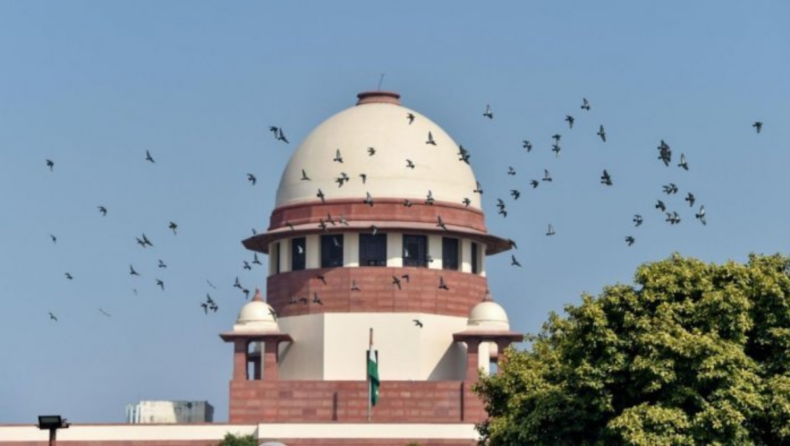SC grants interim relief to rebel Shiv Sena MLAs on Monday, saying no decision will be taken till July 12. Maha deputy Speaker grants legislators time till June 27 to file a reply.
o Shiv Sena rebel MLAs got interim relief when the Supreme Court said they had time until 5.30 pm on July 12 to send their replies.
o Bench of Justices Surya Kant and Justice J B Pardiwala has fixed July 11 as the next date of hearing.
Shiv Sena MLAs get interim relief
The Supreme Court on Monday granted interim relief to Shiv Sena rebel MLAs, asserting that no decision will be taken on their disqualification till June 12. The bench of Justices Surya Kant and Justice J B Pardiwala which issued notice on two petitions, by Sena rebel leader Eknath Shinde and 15 MLAs of his faction respectively, fixed July 11 as the next date of hearing. Taking note of the rebel MLAs’ submission that their life and property were under threat, the bench directed that a counter-affidavit be filed by the respondents within five days.
It also sought a counter-affidavit after the MLAs and the Assembly Deputy Speaker sought to contradict each other on the notice claimed to have been served by the dissident MLAs, seeking disqualification of the Deputy Speaker. The Deputy Speaker contended that the notice was sent from an unregistered email and was not taken on record as its genuineness was in doubt. The bench seeks proof of validity and directs that the developments hereon be explained in an affidavit.
Opposition to Interim Orders
Senior Advocates A M Singhvi and Devdutt Kamat, appearing for the Deputy Speaker and other respondents, opposed interim orders, claiming that disqualifications proceedings by Speaker or the Deputy Speaker were proceedings of the House and that courts cannot intervene. But the bench referred to a Supreme Court ruling which said a judicial review is not barred.
Appearing for the rebel MLAs, Senior Advocate Neeraj Kishan Kaul, pointed out that the rebel MLAs had served notice for removal of the Deputy Speaker on June 25, even before the disqualification notices were issued to them on June 25, Kaul asked how the Deputy Speaker can proceed with the matter when a Supreme Court bench says that when his own issue of removal is not decided, he cannot proceed with disqualification.To a specific query from the bench on why they had not approached the High Court under Article 226 of the Constitution, Kaul referred the bench to statements by Shiv Sena leaders and said that Mumbai is not conducive to providing legal remedy.
Singhvi, appearing for Shiv Sena legislature party leader Ajay Chaudhari and chief whip Sunil Prabhu, said that the issues raised in the petition could very well be decided by the High Court too. Leapfrogging, he said, is allowed by the Supreme Court but only in rare cases, and just because something has been coming in the press or just because it has some amount of public life in it, it is not a reason to leapfrog.
On the notice by the rebel MLAs for disqualification of the Speaker, Singhvi said that they sent a notice via an unknown, unverified email saying ‘we have lost confidence in you’. Senior Advocate Rajeev Dhavan, appearing for the Deputy Speaker, said there was a notice to which the Deputy Speaker had also sent a reply in which he said “unless and until the genuineness and veracity of such communication and its signatories is ascertained, no further action can be taken” and therefore it “is not being taken on record”. He said it was not sent from a registered email, and not sent to the legislative office.
Kamat said the motion of no-confidence against the Speaker does not have the sanction of the Constitution. While there can be no-confidence motions against the Chief Minister, the term used for Speaker or Deputy Speaker is “removal” because a cause is imperative.
Seeking to fix the next hearing on July 11, the bench sought to know whether it could record a statement. Opposing this, Singhvi said there is no need to record and that if the court were to do so, that mutual respect between the legislature and judiciary will be violated and it would amount to an interim stay. Kamat also opposed the suggestion for an interim order, saying that the disqualification proceedings were as per the Tenth Schedule of the Constitution and, therefore, there is no question of judicial review.













